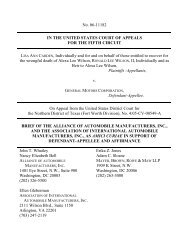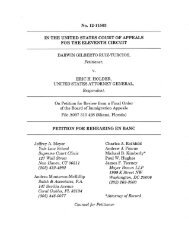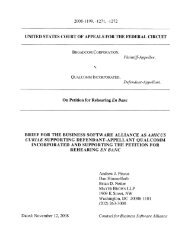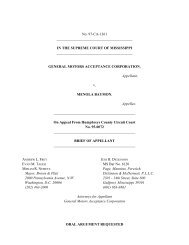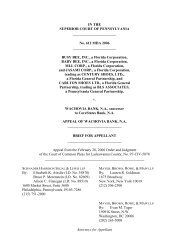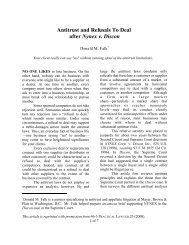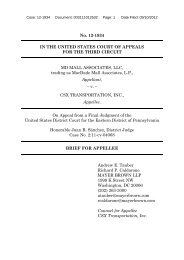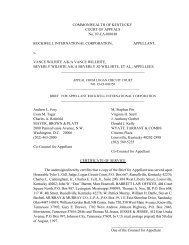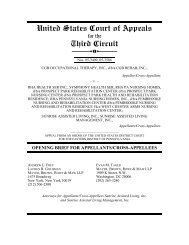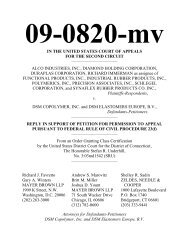No. 5-99-0830 IN THE APPELLATE COURT OF ... - Appellate.net
No. 5-99-0830 IN THE APPELLATE COURT OF ... - Appellate.net
No. 5-99-0830 IN THE APPELLATE COURT OF ... - Appellate.net
You also want an ePaper? Increase the reach of your titles
YUMPU automatically turns print PDFs into web optimized ePapers that Google loves.
fact benefitted from access to non-OEM parts. But, given the striking absence of evidence<br />
of any improper motive, the worst that can be said of State Farm’s conduct is that it<br />
constitutes a well-intentioned mistake, which does not warrant imposition of punitive<br />
damages. See Kohlmeier v. Shelter Ins. Co., 170 Ill.App.3d 643, 658 (5th Dist. 1988) (an<br />
insurer’s “error in judgment” cannot justify punitive damages).<br />
Second, it cannot be “outrageous” to do what state statutes expressly permit. As we<br />
explained above, most states allow specification of non-OEM parts subject to disclosure<br />
and/or consent, and two states (Massachusetts and Hawaii) affirmatively encourage use of<br />
non-OEM parts. Even if State Farm somehow violated ICFA every time it specified a non-<br />
OEM part in those states, it can hardly have been “evil” for State Farm to take state law at<br />
face value and specify non-OEM parts subject to the state-mandated disclosures.<br />
Third, State Farm’s practice of specifying non-OEM parts and providing a subjective<br />
satisfaction Guarantee was fully consistent with industry practice. Numerous insurers have<br />
adopted policies encouraging specification of non-OEM parts. When, as here, the<br />
defendant’s practice comports with industry standards, its conduct cannot be deemed<br />
sufficiently wrongful to warrant punitive damages. See, e.g., Loitz, 138 Ill.2d at 424-25. 64/<br />
Finally, State Farm justifiably relied on the fact that few customers complained about<br />
non-OEM parts after receiving them. The contracts told policyholders that State Farm might<br />
64/<br />
See also Satcher v. Honda Motor Co., 52 F.3d 1311, 1316-17 (5th Cir. 1<strong>99</strong>5)<br />
(vacating punitive award in part because defendant’s conduct was consistent with industry<br />
and government safety standards); Drabik v. Stanley-Bostitch, Inc., <strong>99</strong>7 F.2d 496, 510 (8th<br />
Cir. 1<strong>99</strong>3) (“[c]ompliance with industry standard and custom serves to negate conscious<br />
disregard and to show that the defendant acted with a nonculpable state of mind”); Alley v.<br />
Gubser Dev. Co., 785 F.2d 849, 856 (10th Cir. 1986) (reversing denial of directed verdict<br />
on punitive damages where defendant’s conduct was consistent with industry practice).<br />
-141-



